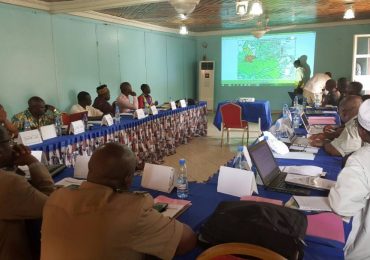Some 842 million people worldwide still go without adequate nourishment, the World Food Programme (WFP) estimates.
The Millennium Development Goals (MDGs) will expire in 2015 and be replaced with the Sustainable Development Goals (SDGs), which are intended to strengthen the international community’s engagement with eradicating poverty and hunger.
“In a world that produces enough food to feed everyone, there is no excuse for anyone to go hungry,” David Taylor, Economic Justice Policy Advisor for Oxfam International, told IPS.
While the first MDG “target of halving the percentage of people suffering from hunger by 2015 appears to be within reach, chronic hunger persists in many areas, particularly in sub-Saharan Africa, with marked disparities in progress,” Taylor remarked.
The discussion surrounding the SDGs as a successor framework to the MDGs began in June 2012 at the Rio+20 Conference. Subsequently, in January 2013, “an Open Working Group (OWG) was established to steer the formulation of the proposal on SDGs,” Dorian Kalamvrezos Navarro, Food and Agriculture Organisation (FAO) Post-2015-SDGs coordinator, told IPS.
On 2 June, the OWG, made up of member states from all five continents, released the Zero Draft on SDGs with 17 proposed goals to be attained by 2030. The group is also supported by a U.N. System Technical Team, which comprises 40 U.N. entities.
Many of the targets of the OWG’s Zero Draft are welcomed by Oxfam, said Taylor, “including the target to end rather than merely reduce hunger, and the emphasis on supporting small-scale producers, women and other marginal groups.”
“If we’re to have an effective framework we need to identify applicable indicators. This is very challenging,” Jomo Kwame Sundaram, Assistant Director-General for Economic and Social Development and FAO lead for post-2015, told IPS.
Previously, critics such as Olivier de Schutter, U.N Special Rapporteur on the Right to Food, have argued that the 18 targets of the MDGs had been decided on the basis of the most easily compiled data available, neglecting the deeper causes of poverty and hunger.
Sundaram pointed out that in drafting the SDGs, the international community needs to identify suitable goals and targets that are easy to measure, for which we have available data and, of course, that are meaningful.
“A welcome step forward is the inclusion of goals on reducing inequality and on climate change – and of course on food security,” Taylor noted, stressing that inequality and climate change constitute two major injustices continue to undermine the efforts of millions of people to escape poverty and hunger.
Courtesy IPS









